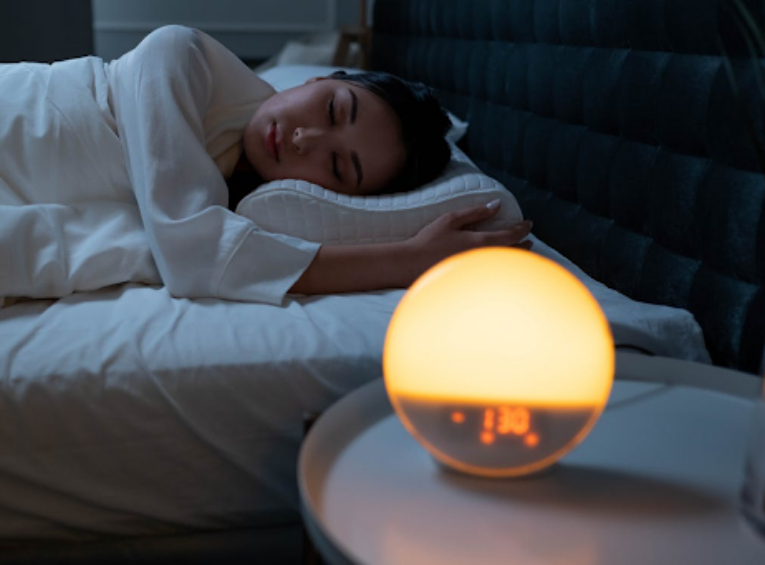
There’s a difference between spending hours in bed and getting good, high-quality rest. The importance of getting deep, restorative sleep cannot be overstated.
According to John Hopkin’s Medicine, sleep plays a pivotal role in brain plasticity— your ability to process and recall information. In other words, poor sleep negatively impacts cognition and focus while simultaneously wreaking havoc on the rest of the body.
Unfortunately, using drugstore sleep aids can cause more harm than good. Dr. Suzanne Bertisch of the Harvard Medical School highlighted the increased risk of falls, grogginess, and long-term dependency leading to diseases like Alzheimer’s.
Here are some natural ways to improve your sleep quality and neurological function without robbing Peter to pay Paul.
Try a Natural Sleep Aid
Rather than choosing an over-the-counter (OTC) or prescription sleep aid, consider resorting to natural alternatives. Several science-backed herbs and aromatherapeutic blends create a sense of calm and restfulness. Chamomile extract and tea have shown positive results in relation to sleep improvement, and initial studies on lavender oil indicate favorable results for stress reduction and sleep.
Since the passing of the Farm Bill in 2018, many people have found success with CBD and federally legal cannabis as a natural sleep aid. Certain cannabis derivatives can help alleviate anxiety and stress while inducing restfulness. Several options are available, ranging from CBD oil tinctures to Delta 8 Carts for vape pens.
Unplug from Social Media
Technology is often called a double-edged sword for its unique combination of incredible benefits and terrible damage. On the one hand, the internet provides access to a world of knowledge and the global market with the touch of a button. On the other hand, extreme connectivity, especially with social media, damages mental health and cognitive engagement.
Studies have shown the damaging effects of social media, and many report mindless scrolling into the late hours of the night. This issue, combined with the negative effects of blue wave lights on our natural circadian rhythms, impacts sleep quality.
Reduce the multi-faceted effects of social media and smartphone use before bedtime by putting your phone on airplane mode and tucking it away. Ideally, you’ll unplug at least an hour before bed. Consider using time limits and app blockers to help you set healthy boundaries.
Limit Stimulants
Excess caffeine use also negatively impacts sleep quality. Many people who drink excessive amounts of caffeine during the day can fall asleep without too much trouble. However, they’re more likely to experience sleep disruptions throughout the night.
Avoid drinking caffeine after lunchtime, as the typical lifespan of this stimulant is 5-9 hours. Be mindful of hidden sources of caffeine, like chocolate, some herbal teas, decaf coffee, and gym supplements.
Turn Down the Temperature
One of the most overlooked impacts on sleep quality is the room temperature. Scientists are just beginning to understand the profound impact of room temperature on how we sleep. Consider that our ancestors slept in cool, dark caves for shelter. Your core body temperature naturally decreases during periods of sleep. Having an environment reflecting that drop is optimal for better rest.
The current recommendation for sleep-friendly room temperatures is 60 to 67°F. Adjust your bedroom temperature by a few degrees and track your results over a couple of weeks.
Build a Routine
Humans are creatures of habit. Routines get hardwired into our brains and tell our bodies what we should be doing and when. One of the best ways to tell your body that it’s time to sleep is to create a structured routine around bedtime. This routine could include some of the things listed above (putting away the phone, turning down the temperature, using a natural aid), combined with other self-care activities.
The importance of stress management before bedtime cannot be understated. Stress causes sleep disruptions and also triggers the release of the hormone cortisol into the bloodstream. Furthermore, sleep deprivation also triggers a cortisol release, creating a vicious cycle. Excess cortisol leads to metabolic dysfunction, hormonal disruptions, and even chronic inflammation and diseases. Thus, incorporating stress management into a bedtime routine is essential.
Once you engage in your routine for a few weeks, your body will naturally recognize the signs of bedtime and prepare for high-quality rest.
Use White Noise
The idea of using a white noise machine or fan to sleep is nothing new, but scientists are just coming to understand how beneficial this truly is. Recent studies show that using a white noise machine helped people fall asleep 38% faster, especially in busy urban areas or shared spaces (i.e., hospitals).
It’s believed that the presence of white noise protects sleepers from unexpected disruptions throughout the night, like a loud vehicle going by or cracking noises as a house settles. Many sleepers aren’t aware of these disruptions, as they don’t regain full consciousness— though people using fitness trackers can often see them in the data.
If you use a white noise machine or app, pay attention to the decibel level. The ideal decibel level for sleep is 45-60 decibels. To prevent ear damage, you should never turn the volume up to 85 decibels and over.
Final Thoughts
Improving your sleep quality isn’t something that happens overnight; it happens over many nights with adjustments to suit your personal needs. Try these science-backed strategies and track your progress to see favorable results.
*(Disclaimer: This article is not medical advice. It is based on anecdotal user experience alone. If you are thinking about incorporating cannabis (delta-8 THC, delta-9 THC, or CBD) into your medicinal routine, please consult a healthcare professional. Do not stop taking any prescribed medications without first consulting your doctor.)*
